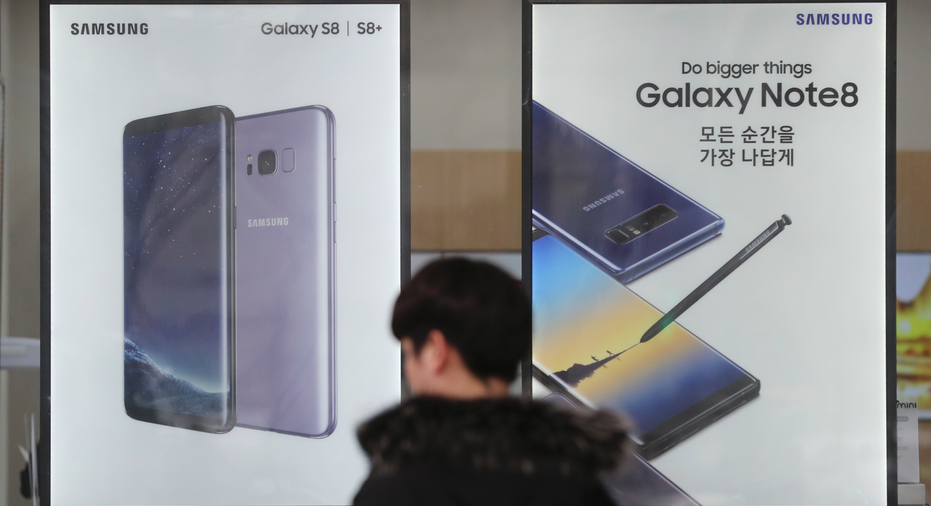Samsung's profit jumps 64 percent to record high on chips

SEOUL, South Korea – Samsung Electronics said its October-December operating profit jumped 64 percent to a record high, capping off 2017 with the biggest annual operating income and sales in its history thanks to the blockbuster semiconductor business.
In its earnings preview Tuesday, the South Korean company put its operating profit at 15.1 trillion won ($ 14.1 billion) for the final three months of last year, compared with 9.2 trillion won a year earlier.
The result, however, missed expectations. Analysts polled by financial data firm FactSet expected 16.2 trillion won in operating profit. Analysts lowered their views on Samsung last month, citing the one-time bonuses to employees and the appreciation of the local currency against the U.S. dollar. Nomura estimates that Samsung spent 700 billion won ($655 million) as bonuses to employees.
Fourth-quarter sales rose 24 percent to 66 trillion won ($61.8 billion), also at a record high.
For the entire year, Samsung's operating income stood at 53.6 trillion won ($50.2 billion), a 83-percent surge from 2016, on sales of 239.6 trillion won ($224.2 billion), up 19 percent from the previous year.
Samsung did not give a quarterly net profit or breakdown figures for each businesses. The company is due to disclose more details of its financial performance later this month.
What drove Samsung's monstrous year was the company's semiconductor division, which has been cashing in on the skyrocketing demand and prices of memory chips. The world's demand for more storage for pictures, videos, files and other digital data in their gadgets and servers, as well as demand for more computing power to run many programs faster, pushed up demand for memory chips that are dominated by Samsung.
Samsung controls about half of the world's DRAM memory chips that temporarily hold data and help computers run many programs at the same time, and about one third of the world's NAND chips, which store files. It was the biggest beneficiary of the jump in prices of those memory chips in 2017.
Some analysts however worry the price of chips may fall this year and weigh on Samsung's earnings while others remain bullish on Samsung that a possible fall in chip prices would be outweighed by a big increase in sales.
The stellar financial achievement has coincided with Samsung's management crisis. Its de facto leader Lee Jae-yong, a grandson of Samsung's founder and the only son of the ailing Samsung chair, is fighting at an appeals court to overturn his five-year prison sentence for bribery and other charges. Lee has been in prison for nearly a year. Prosecutors who also appealed the lower court's ruling have demanded a 12-year prison term for Lee. The ruling is expected on Feb. 5.
The company made major management changes in November. After Samsung's longtime head of the semiconductor division offered to resign, the heads of the mobile business and TV divisions also stepped down. Those three divisions are now helmed by younger leaders.



















